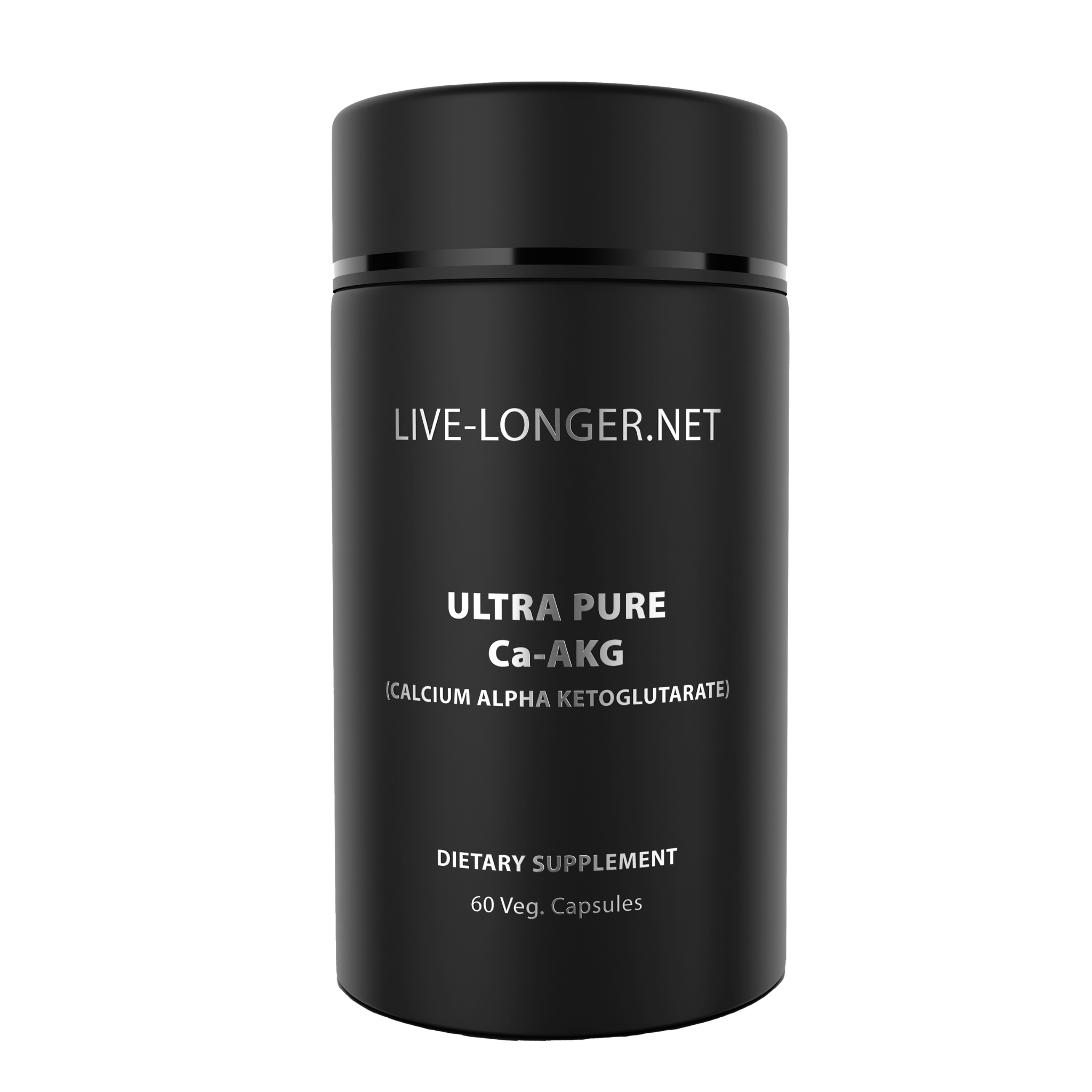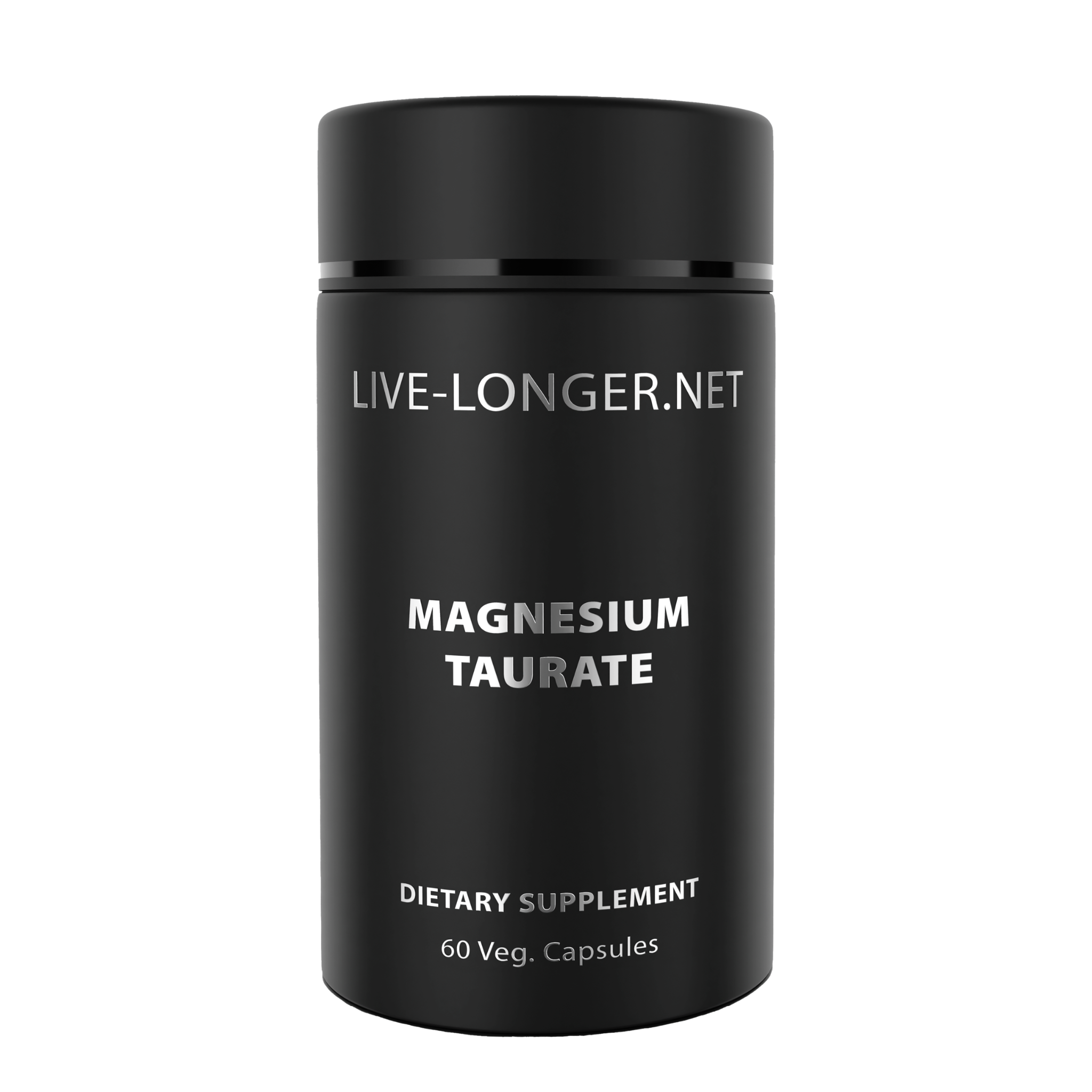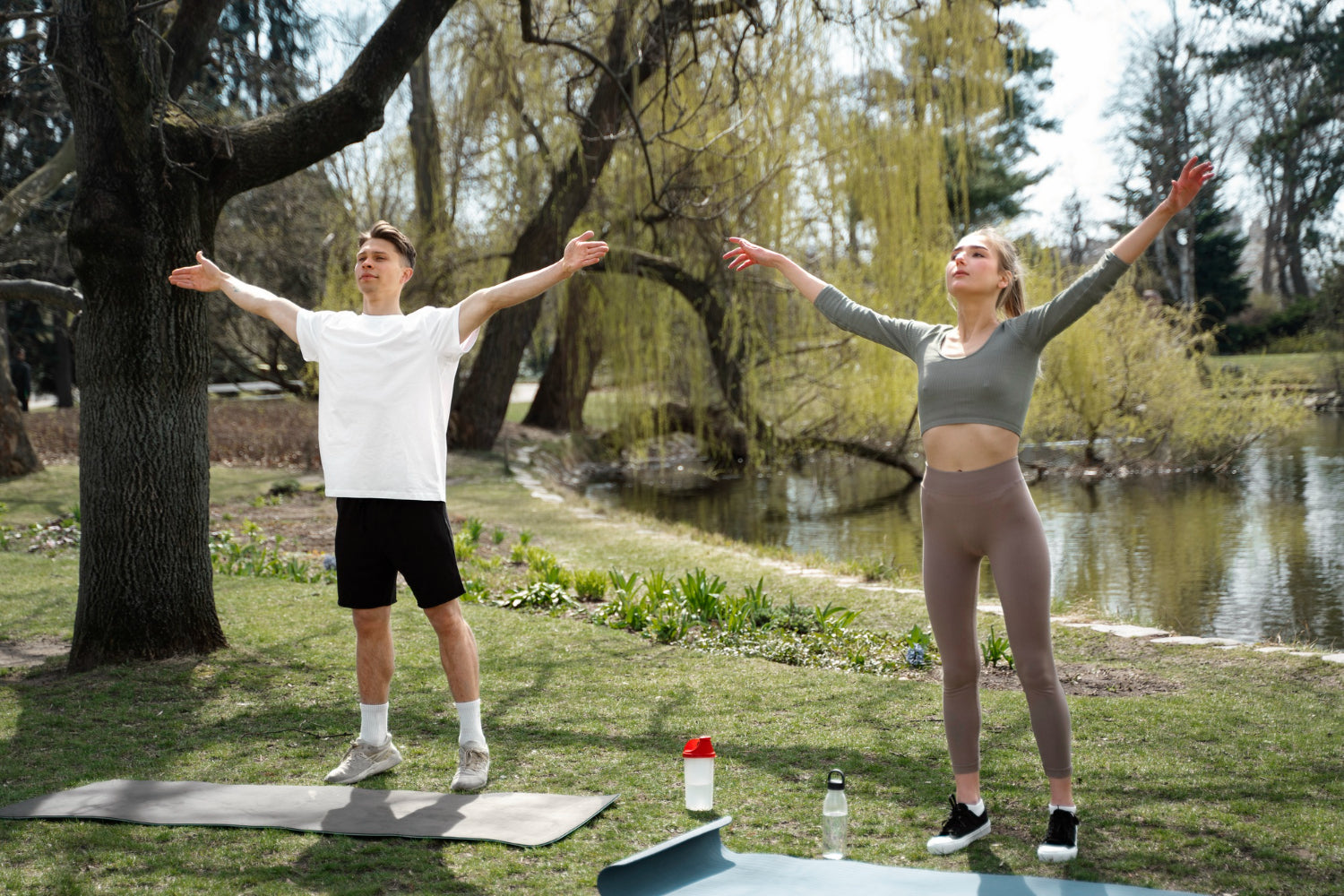Introduction:
There is a term called "sarcopenia." It means the loss of muscle mass, strength, and bone weakness with age.
Every fitness aficionado dreams of having a strong body, robust muscles, and high energy even as they age. So, apart from a workout, is there anything else to help you stay young and healthy?
If you have a gym enthusiast friend, you might have heard them hashing over creatine supplements.
But among the myriad of supplements available on the market, how do you know which is the best creatine supplement?
In this blog, we will discuss what creatine is, why it is important for the body, and which is the best creatine supplement.
What is Creatine?
The word "creatine" comes from the Greek word “kreas” meaning “meat."
Creatine is a molecule made in the body from certain amino acids like arginine, glycine, and methionine.
Your body relies on creatine to "create" energy for muscles, with most of it stored in your skeletal muscles.
Studies show that taking the best creatine supplements might help older individuals build more muscle and perform better physically[1].
Creatine is a natural substance in the body and in foods like red meat and seafood. People mainly use creatine to improve exercise performance and build muscle. It's also used for issues like muscle cramps, tiredness, multiple sclerosis (MS), and depression.
The Best Creatine Supplement: Why Should You Consider It?
What is so special about creatine supplements? Why do you need some of the best creatine supplements to increase your creatine pool? Let's see:
Boosts Your Physical Performance
Did you know creatine is allowed for use by sports organizations like the International Olympic Committee and the National Collegiate Athletic Association (NCAA)?
Athletes take creatine supplements to boost their muscle strength and exercise performance during intense workouts.
Creatine assists in keeping the muscles fueled with energy during tough workouts. It not only boosts energy and muscle growth but also aids in speeding up muscle recovery by repairing tiny tears in your muscles caused by exercise.
The evidence says taking creatine supplements while weight training helps you perform better, gain muscle, and improve muscle shape.
A study from 2003 found that those who took creatine with weight training showed 8% to 14% better performance than those who didn't [2].
Counteracts age-related decline in strength
One of the acknowledged perks of creatine supplements is their ability to increase muscle mass and muscle strength.
How do creatine supplements do that?
Creatine supplements help build up the fuel (phosphocreatine) in your muscles. This fuel helps make a molecule called adenosine triphosphate (ATP), which your cells need for energy.
When you exercise, your body breaks down ATP to make energy. But your body cannot produce ATP as fast as you use it up.
Creatine supplements boost your phosphocreatine stores, which means you can make more ATP for your muscles [3]. This is why creatine helps improve performance during workouts.
Increases Muscle Mass
A statement from The International Society of Sports Nutrition says that creatine is the best supplement for building muscle (increasing muscle mass). Taking it for a short time, even for 5 to 7 days, can make your muscles grow bigger [4].
Many studies show that creatine helps build muscle when combined with exercise [5].
Improves Glycemic Index
Diabetes is a common complaint among middle-aged or older individuals nowadays. People with type 2 diabetes cannot use insulin properly.
In a 12-week study, 25 patients diagnosed with diabetes were given creatine and placebo (fake pill). They were also enrolled in an exercise training program. After 12 weeks, the researchers measured their glycosylated hemoglobin (HbA1c), which shows how well blood sugar is controlled. They also assessed other things like blood glucose, insulin levels, blood cholesterol, and physical fitness.
It was concluded that taking creatine and exercising helps control blood sugar levels in people with type 2 diabetes [6].
Creatine works by increasing insulin secretion and enhancing glucose uptake by the cells [7].
If you have diabetes and want to try creatine, consult your doctor before trying creatine supplements.
Improves Bone Health And Prevents Falls
According to a 2023 report by the Centers for Disease Control and Prevention (CDC), around 3 million older individuals every year are treated in emergencies for fall injuries [8].
With advancing age, bone mass starts declining (osteoporosis), and bone fractures and fall injuries are more likely.
In one study, older men (aged 55–77) who took creatine while doing weightlifting exercises had a 27% decrease in bone damage compared to those who didn't take creatine [9].
Another study found that taking creatine supplements (8g/day) over 12 months combined with a resistance training program reduces bone loss in postmenopausal women [10].
Moreover, a group of studies showed that older adults taking creatine while doing weightlifting exercises could stand up from a chair more easily than those who didn't take creatine [11]. It shows creatine can prevent falls among older adults and reduce the chances of getting fractures.
Works As An Anti-inflammatory Agent
Are you familiar with the term "inflammaging?" It is a combination of two words: inflammation and aging.
Inflammaging refers to an unusual increase in the inflammatory molecules with age. This persistent inflammation is like a sign of faster aging [12].
Inflammaging is related to conditions like heart problems, kidney issues, cancer, depression, memory loss, bone weakening, and low red blood cell count.
Inflammation results in the formation of harmful substances called reactive oxygen species, which can damage body tissues. As people age, high levels of inflammation and oxidative stress can lower the body's ability to make muscle proteins.
Creatine supplements work as antioxidants and might help decrease this oxidative stress and inflammation [13].
Gain in Energy
Losing bone density and muscle strength with aging results in fatigue in older adults and may make daily activities harder.
Another study shows that older adults who take creatine, even without exercising, can gain weight, have more energy, and do daily tasks better. Combining creatine with exercise makes them even more robust and their bones denser [14].
Prevents Neurological Damage
Creatine also helps the brain work better, improving memory and thinking skills, especially in older adults. It's a safe and cheap supplement that can make a big difference in the lives of older people, potentially reducing the risks of muscle loss and memory problems.
Are Creatine Supplements Safe For the Elderly?
Research on the safety of taking creatine as a supplement for older adults is limited. However, studies show that creatine supplementation doesn't harm the liver, kidneys, or cells in the body. For instance, in one study, older adults who took creatine while doing resistance training didn't show any adverse effects on various blood markers related to liver and kidney function [9].
Similarly, in other studies involving postmenopausal women and aging individuals with diabetes, creatine supplementation didn't cause any harmful changes in kidney or liver function [10].
According to the International Society for Sports Nutrition, recent research suggests that taking creatine is safe for older adults.
The Best Creatine Supplement: The ULTRA-PURE MICRONIZED CREATINE MONOHYDRATE POWDER
The thought of choosing the best creatine supplement from so many products available on the market can be overwhelming.
Don't worry; we have researched and brought you the best creatine supplement you can get: the ultra-pure micronized creatine monohydrate powder.
Adding this best creatine supplement to your diet can help your muscles store more of it. Clinical studies have shown that using the recommended dose of the best creatine supplement can quickly lead to significant muscle gain and strength improvement [15].
Taking at least 3g of creatine daily has been proven by science to improve performance during intense exercises like weight training or interval cardio.
The European Food Safety Authority backs this claim.
When creatine undergoes micronization, it gets broken down into much smaller particles. Though this process is more costly, it allows for better absorption and usage during training.
The best creatine supplement, Ultra-pure Creatine, offers the highest quality micronized creatine, backed by extensive research. It's known to boost lean muscle mass and enhance strength and endurance.
We are dedicated to empowering individuals to reach their full potential through nutrition and innovation. Whether you're a professional athlete or a casual gym-goer, we support your journey towards strength and fitness.
Conclusion
The best creatine supplement, ultra-pure micronized creatine monohydrate powder, is an inexpensive, effective, and safe supplement, especially for athletes and the elderly population.
It can help older people, promote brain health, and enhance exercise. Vegetarians and older adults might benefit from taking it since they might not get enough creatine from their food.
If you want to try creatine supplements, the monohydrate form is the best.
References
- Candow, D. G., Forbes, S. C., Chilibeck, P. D., Cornish, S. M., Antonio, J., & Kreider, R. B. (2019). Effectiveness of Creatine Supplementation on Aging Muscle and Bone: Focus on Falls Prevention and Inflammation. Journal of Clinical Medicine, 8(4), 488.
- Rawson, E. S., & Volek, J. S. (2003). Effects of creatine supplementation and resistance training on muscle strength and weightlifting performance. Journal of strength and conditioning research, 17(4), 822–831.
- Rawson, E. S., Clarkson, P. M., Price, T. B., & Miles, M. P. (2002). Differential response of muscle phosphocreatine to creatine supplementation in young and old subjects. Acta physiologica Scandinavica, 174(1), 57–65.
- Buford, T. W., Kreider, R. B., Stout, J. R., Greenwood, M., Campbell, B., Spano, M., Ziegenfuss, T., Lopez, H., Landis, J., & Antonio, J. (2007). International Society of Sports Nutrition position stand creatine supplementation and exercise. Journal of the International Society of Sports Nutrition, 4, 6.
- Nissen, S. L., & Sharp, R. L. (2003). Effect of dietary supplements on lean mass and strength gains with resistance exercise: a meta-analysis. Journal of applied physiology (Bethesda, Md.: 1985), 94(2), 651–659.
- Gualano, B., DE Salles Painneli, V., Roschel, H., Artioli, G. G., Neves, M., Jr, De Sá Pinto, A. L., Da Silva, M. E., Cunha, M. R., Otaduy, M. C., Leite, C.daC., Ferreira, J. C., Pereira, R. M., Brum, P. C., Bonfá, E., & Lancha, A. H., Jr (2011). Creatine in type 2 diabetes: a randomized, double-blind, placebo-controlled trial. Medicine and science in sports and exercise, 43(5), 770–778.
- Solis, M. Y., Artioli, G. G., & Gualano, B. (2021). Potential of Creatine in Glucose Management and Diabetes. Nutrients, 13(2), 570.
- (2023). Facts about Falls. The Centers for Disease Control and Prevention.
- Candow, D. G., Little, J. P., Chilibeck, P. D., Abeysekara, S., Zello, G. A., Kazachkov, M., Cornish, S. M., & Yu, P. H. (2008). Low-dose creatine combined with protein during resistance training in older men. Medicine and science in sports and exercise, 40(9), 1645–1652.
- Chilibeck, P. D., Candow, D. G., Landeryou, T., Kaviani, M., & Paus-Jenssen, L. (2015). Effects of Creatine and Resistance Training on Bone Health in Postmenopausal Women. Medicine and science in sports and exercise, 47(8), 1587–1595.
- Devries, M. C., & Phillips, S. M. (2014). Creatine supplementation during resistance training in older adults meta-analysis. Medicine and science in sports and exercise, 46(6), 1194–1203.
- Ferrucci, L., & Fabbri, E. (2018). Inflammageing: chronic inflammation in aging, cardiovascular disease, and frailty. Nature reviews. Cardiology, 15(9), 505–522.
- Sestili, P., Martinelli, C., Colombo, E., Barbieri, E., Potenza, L., Sartini, S., & Fimognari, C. (2011). Creatine is an antioxidant. Amino acids, 40(5), 1385–1396.
- Rawson, E. S., & Venezia, A. C. (2011). Use of creatine in older adults and evidence for effects on cognitive function in young and old. Amino acids, 40(5), 1349–1362.
- Selsby, J. T., DiSilvestro, R. A., & Devor, S. T. (2004). Mg2+-creatine chelate and a low-dose creatine supplementation regimen improve exercise performance. Journal of strength and conditioning research, 18(2), 311–315.









